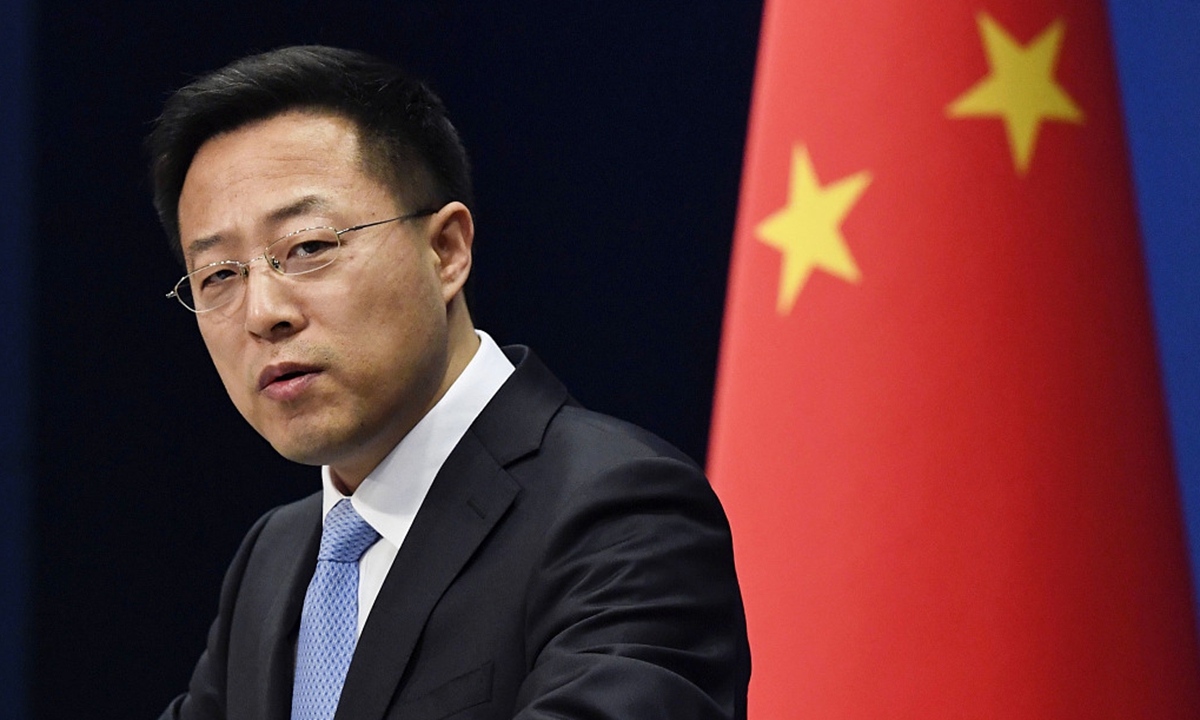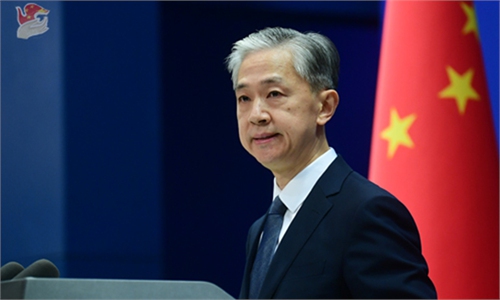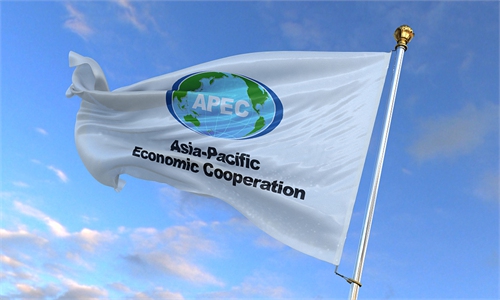
Zhao Lijian Photo: VCG
China's Foreign Ministry slammed the US plan to counter China, saying the so-called "invest, align, compete" approach outlined in a recent speech by US Secretary of State Antony Blinken is just a replica of the previous so-called "competition, confrontation and cooperation" strategy.
The speech was designed to gather resources at home and abroad to contain and suppress China, Foreign Ministry spokesperson Zhao Lijian said at a regular press conference on Wednesday, urging the US to make the right choice instead of playing word games.
Blinken said in the speech delivered at George Washington University in Washington, DC that the Biden administration strategy can be summed up in three words: invest, align, and compete.
China is happy to see the US achieve its own development through legitimate investment, but the US should not use China as an imaginary enemy to rekindle its sense of national purpose. How the US improves its own innovation and competitiveness is its own business, but it can't suppress and contain China, interfere in China's internal affairs or harm China's interests, Zhao said.
Zhao cited the Bipartisan Innovation Act as an example, saying that the act uses China as an imaginary enemy under the banner of enhancing the competitiveness of the US, and China is mentioned more than 800 times in it, along with clauses that harm China's interests.
"Of course, China is firmly opposed to this," Zhao said.
We do not interfere with the normal coordination and cooperation between the US and its allies, but this relationship cannot target or harm the interests of third parties, nor violate the basic norms of international relations, Zhao said.
The US has formed anti-China alliances, whether it is an Indo-Pacific strategy, the QUAD, or AUKUS - they are products of a Cold War mentality and tools of a 'zero-sum game,'" Zhao said, adding that such moves will aggravate tensions in the region.
China does not deny that there is some competition between China and the US in the economic and trade field, but it cannot define Sino-US relations on the basis of competition, let alone engage in confrontation between major powers under the guise of competition, Zhao said.
The US talks about competition, but what it actually does is to generalize the concept of national security, and engage in illegal unilateral sanctions and long-arm jurisdiction, which seriously damages the legitimate rights and interests of Chinese companies and unreasonably deprives other countries of their right to development, Zhao said.
If the US blindly defines Sino-US relations in terms of major power competition, it will only push China and the US into confrontation and conflict and push the world into turmoil, Zhao warned.
Global Times



